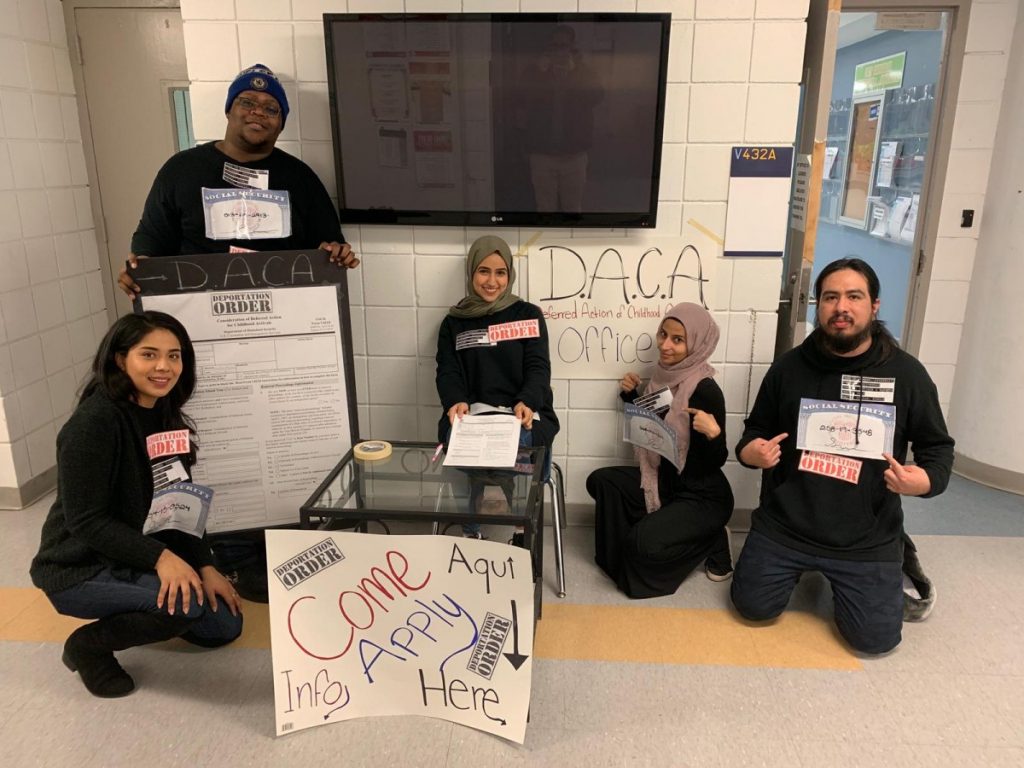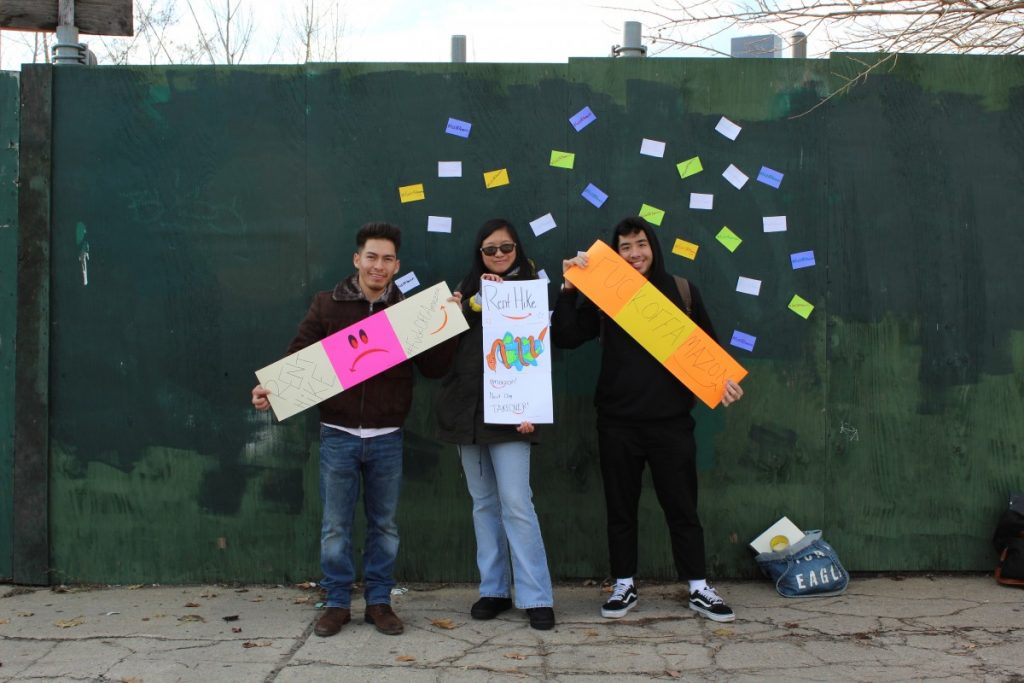This month we’re profiling Professor Nora Almeida, an Instruction and Outreach Librarian. Professor Almeida assumed her current position in 2015, after joining the City Tech community in 2013 as an adjunct librarian.
What Department/Program are you affiliated with?
City Tech Library
Describe your experience joining the OpenLab and when/how you began actively using the platform to support your pedagogy.
I started using OpenLab in 2013 when I joined City Tech as an adjunct and was teaching LIB1201 “Research and Documentation for the Information Age.” I used the platform to host course materials, the course schedule, and assignments but also wanted to build some kind of online community for students. Blogging is a big component of the course and I like that students can read and respond to each other’s posts. I think that making my course ‘open’ and involving my students in decisions about who can (and should) see their work also presented a great opportunity to talk about online identity, intellectual property, and digital privacy—concepts that relate directly to LIB1201 course content.
Why did you decide to start using the OpenLab?
I’m pretty comfortable with WordPress and like the flexibility of designing my own curriculum AND the platform that I present it on. Many of the out-of-box Learning Management Systems I’ve used at other institutions are constraining and clunky to use. They are built like silos and it’s hard to have any input into the online identity of your course, which I think is important in terms of reflecting what the class is about. I know that OpenLab is intimidating to some new students but it’s more practical to have some fluency in a WordPress-based platform when you graduate from college than it is to have used a proprietary platform that no one outside of higher education has event heard of. So I present it to my students as a way to learn a little bit about a technology that they might actually encounter again in a job.
Can you describe the ways you have integrated the OpenLab into your pedagogical practices?
Aside from blogging, I have had students in my credit-courses create project sites on OpenLab for collaborative high-stakes assignments. I do research assignments with students but have stopped requiring formal research papers because students aren’t forced to think about structure or rhetorical mode—they just write a standard 5 paragraph essay and try to shove a few quotes in there. So, in response, I have integrated projects into my curriculum that involve producing podcasts, creating maps, or developing photo-essays based on research. The students then design part of an OpenLab project site that includes all of the project components—an annotated bibliography that summarizes the sources they found, written reflections, and their podcast or essay or map. I leave the site organization and visual design up to them but that’s a formal part of how the projects are evaluated. I emphasize that designing their project site should be intentional and thoughtful. We do a lot of field trips for the placed-based interdisciplinary courses that I teach and I have started to try to frame primary source “documentation” as something that students actively participate in creating on OpenLab.
How has the OpenLab transformed or expanded your pedagogy, and the pedagogical values you’re able to realize in your courses and educational practice?
In both credit courses and library instruction, I think about context and collaboration as a central elements of my pedagogy. I usually co-teach a special topics interdisciplinary course called Learning Places and I also spend a lot of time in other people’s classrooms, which has made me really cognizant of the (sometimes fraught) expectations and emotions we all carry with us into classrooms. I think that intentional, critical pedagogy is always context aware and that if I’m doing my job, I’m acknowledging that we’re all in these shifting and precarious positions in relation to each other, in relation to institutional structures, and in relation to what we’re learning. So I try to approach pedagogy (in physical and digital spaces) in a way that engages people and makes them feel like they are actively involved in shaping outcomes. I try to highlight that what we (all) bring to the table matters.
In terms of what this has to do with OpenLab, as a librarian and critical pedagogy proponent, I’m coming from a place where cultivating openness (in the form of accessible and interactive environments—digital and otherwise) is really important to me. I’m interested in a digital spaces that my students and I have some power to shape.
Aside from courses, how does the OpenLab support your pedagogical practices and ambitions?
I think it’s awesome that the OpenLab team foregrounds pedagogy—that the conversation is about open pedagogy and how that translates to tech rather than trying to make how we teach fit into a proprietary commercial platforms. I also think that as a whole, higher education, hasn’t fully thought through what it means to outsource education to private companies who are making money off student data or automating test scores or selling us copyrighted lecture slides. All this to say, I think it’s great that we’re building the tools that we—City Tech students and faculty—specifically need.
Beyond my role as an instructor, I see OpenLab as a great tool for connecting across disciplines and engaging communities beyond City Tech. The OpenLab team helped the library develop some custom widgets and I think it’s really important that there is less of a divide between the resources the library has to support instruction and the place(s) where instruction happens. I’ve also been involved in the library Open Education Resources (OER) initiative and think the OpenLab has been important to ensure that we have a good infrastructure that is scalable and adaptable. Dealing with the textbook affordability crisis facing our students is important to address right now but we also need an open scalable platform that ensures the initiative is sustainable. The OER committee is also using OpenLab to help faculty learn about instructional design and accessibility and copyright—which they can carry forward into other projects. Projects like the OER initiative and Living Lab illustrate that we can build infrastructure on OpenLab to support each other, to help streamline curricula, and to build on (rather than replicate) each other’s work.






Thanks @nalmeida for talking open pedagogy with me! You got me thinking much more about “documentation” in shared online spaces.